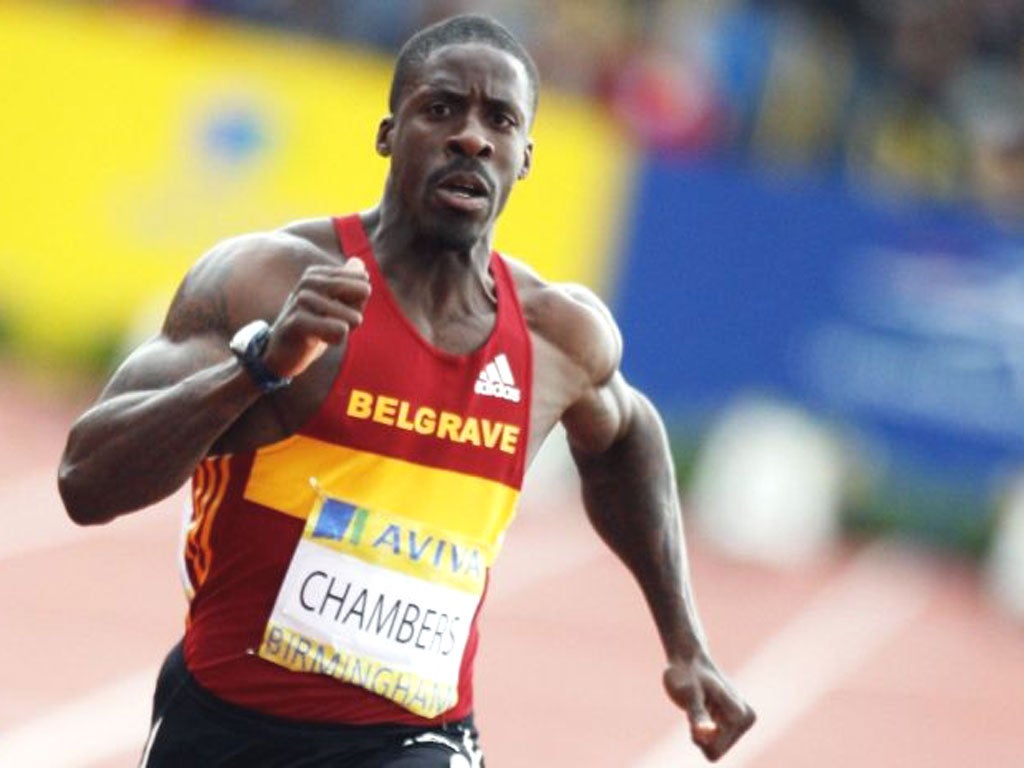Simon Turnbull: It's a sorry state to have sympathy for the devil
The Way I See It: When Gatlin was banned he blamed a grudge-bearing masseur for administering some dodgy cream

The verdict is almost in. Any day now – by the end of the month at the latest – the Court of Arbitration for Sport will announce whether the British Olympic Association can maintain the by-law that precludes athletes from all sports who have served doping suspensions of six months or longer from selection for the British Olympic team.
It seems a foregone conclusion. Ever since CAS pronounced last October that the International Olympic Committee rule barring returning drug offenders was "invalid and unenforceable", the BOA by-law has been living on borrowed time.
Sadly so, it has to be said. "Sport loses out to cheaters," the British 400 metres champion Martyn Rooney tweeted on the day the IOC ban was lifted. "It's not a good day for people who don't take drugs."
Indeed, it was not. It meant that Rooney, a Croydon boy blessed with natural talent as huge as his 6ft 5in frame, would have to face LaShawn Merritt in the Olympic arena on the other side of his hometown this summer. And that Justin Gatlin, Merritt's US team-mate, and the rest of the drug takers reinstated in Olympic sports since the Beijing Games, would be free to go for gold.
It also meant that only former British dopers, such as the 100m runner Dwain Chambers and the cyclist David Millar, would be regarded as persona non grata at the London Games. It meant, inevitably, that pressure would be brought to bear upon the BOA and ultimately the Court of Arbitration for Sport to ensure the one-time cheats from these shores were treated the same as the one-time cheats from the rest of the world.
And rightly so. It was not right that Gatlin, a man who has served not one but two drugs bans, could sit in the press conference room after winning the 60m final at the World Indoor Athletics Championships in Istanbul last month talking about challenging Usain Bolt for the 100m title in London while Chambers, the bronze medallist in the 60m race in Turkey, faced the prospect of kicking his heels in frustration when the Olympics came to his hometown.
It is a sorry state of affairs when sport has come to this: feeling sympathy for the devil – Chambers was banned from athletics for two years after testing positive for a frightening range of banned performance-enhancing products from the Balco drug factory run by Victor Conte. But there you have it. Such is the sporting world we inhabit.
There was a time, in the aftermath of Ben Johnson's positive test at the Seoul Olympics in 1988, when there was hope of a level playing field being found for the benefit of the countless number of athletes from all sports who have spent their lives toiling to the limit to maximise their natural talent.
As a club athlete, I used to join in with the training of a female athlete who competed in those Olympic Games, and in Barcelona in 1992. She could not have toiled any harder, pushing herself to the limit twice a day – sometimes three times – on the track, in the gym, on the roads, in the woods, even up and down sand dunes.
She knew that a good many of her rivals on the world stage were cheating, and that was a source of no little frustration to her. However, she always said: "Unfortunately, I can do nothing about that. I can only concentrate on getting the very best out of myself."
Thus it has been for the rest of the good guys and gals of Olympic sport ever since. Big bad Ben might have been caught in the drugs net in Seoul 24 years ago but athletes from all sports have kept on trying to beat the system – as Chambers, Millar, Merritt and Gatlin can all testify. Or not, as the case may be.
When Gatlin tested positive for amphetamines in 1999 he was banned but reinstated, after pleading that they were contained in medication he was taking to treat attention deficit disorder. When he was banned for excessive levels of testosterone in 2006 he blamed a grudge-bearing masseur for administering some dodgy cream.
Similarly, although Merritt served a 21-month ban after testing positive three times for dehydroepiandrostrerone, he maintained that he was unaware he was ingesting the anabolic steroid as one of the ingredients contained in ExtenZe, a male enhancement product.
A silver medal winner at the World Championships in Daegu after returning to the track last summer, Merritt still insists: "I did not take any performance-enhancing drugs – nothing to enhance my performance on the track."
It was much the same when Brazilian long jumper Maurren Maggi tested positive for clostebol in 2003. She claimed the anabolic steroid was contained in anti-scaring gel she was using. She was suspended for two years but was back in action in time to compete in Beijing in 2008, and win.
So the rest of the world's former drug offenders – and, indeed, our own – would not be the first to win tarnished Olympic gold. Sadly.
Subscribe to Independent Premium to bookmark this article
Want to bookmark your favourite articles and stories to read or reference later? Start your Independent Premium subscription today.

Join our commenting forum
Join thought-provoking conversations, follow other Independent readers and see their replies